It’s no surprise that with the economic downturn, people are working harder than ever and have less free time on their hands. This means something has got to give and rather than spending time lovingly creating a lunchtime masterpiece or slaving over a hot stove after a busy day at work, consumers just want something quick and easy to keep them going. Time for you to shine. Don’t worry that Boots have been offering meal deals for several years now or that Tesco can sell a meal for £3.00, there is plenty of room for your store to stand out and provide tasty options that your shoppers will love.
Tony Owen, marketing director at Rollover, says that independent retailers shouldn’t be intimidated by the multiples when it comes to meal deals as there is more scope in convenience stores. “The lesson is simple, to compete with them you not only need to match them you need to improve on what they are doing,” he says. “You can be more bespoke and more creative than big retailers using lines that they don’t offer - such as hot dogs.”
He says that the first thing a retailer needs to do is contact suppliers and see how they can help them provide a varied offering. “Retailers need to ask suppliers for meal deals and suppliers need to be more pro-active in offering and promoting them,” says Owen. “I also think they need to change more frequently. In many convenience groups the permanent meal deals can become quite tired and part of the furniture.”
Retailer view
“We’re based in the city centre and surrounded by offices so lunchtime meal deals are vital for us. There’s a lot of competition near us so it’s important we vary up the menus as much as possible because if we don’t, the customers will go somewhere else. In order to provide a varied offering we try and incorporate as many different products as possible with different variations. We also do tiered meal deals so that people can buy two products for a certain price with the option of adding in a third while still getting a good deal.
“We also have an evening meal offering with potatoes, vegetables, meat and a dessert for £10 which is perfect for busy customers. Quite often customers will see the evening offering when they’re buying their lunch and pop in again on the way home, increasing the loyalty to the store. Plus they’ll rarely just buy the meal offering, they’ll buy a couple of other items as well.”
Chris Williams, Spar Great Victoria Street, Belfast, Northern Ireland
Simon Harris, brand development manager at Palmer and Harvey, believes that size shouldn’t be an issue when it comes to offering meal deals. “If you are a small store and even if you don’t do hot food, you shouldn’t be disadvantaged by this,” he says. “There are still great ways you can offer a variety of linked meal deals on confectionery and soft drinks, as well as sandwiches and crisps. However, having a hot food-to-go counter such as Palmer amd Harvey’s hot food to go offer Fresh Express helps to broaden your offer and opens up a bigger market of shoppers, who are looking for a hot meal, whatever the time of day.”
Harris says that meal deals are also a great way to convey that independent retailers are just as good value as the multiples. “Setting the correct price point is essential, your customer demographics, store format and location will all influence what the optimum price to charge should be,” he says. “Using cross-category promotions and deals is a great way to compete with multiples, and is a great opportunity to display the value that can be found in store.
Stephen Clifford, marketing controller at Country Choice, says that retailers should be crafty about their pricing when it comes to meal deals. “Round pound deals are an extremely good idea as they simplify and speed up the transaction process which is an important consideration for consumers who want to be in and out of a store in a hurry,” says Clifford. “For example a retailer might offer a breakfast bap (rrp: £1.89) and coffee (rrp: £1.50) at a round pound price of £3.”
Owen urges retailers not to panic about pricing but rather focus on providing decent value. “I think it’s more about the concept of value rather than cheap or high prices and it’s about being creative,” says Owen. “If the competition is offering a £3 meal deal you can always offer a £2 or £2.50 deal but leave out the crisps or chocolate.”
Kettle Foods marketing director Andrew Slamin says that providing a premium feel to an offering can pay dividends. “We find that the inclusion of premium options makes the offer increasingly attractive and improves the value perception to consumers,” he says. “Due to the recession, people are looking for a good deal yet still want to treat themselves with premium products.”
Harris says that retailers should focus more on getting the offering right. “It’s important however that retailers know their own market and can adapt to shoppers needs by exploring the different types of linked deals they can offer,” he says. “For instance, if the store has peak footfall from white van men in the morning and lunchtime, it makes sense to offer a deal on food to go snacks such as sausage rolls and hot drinks or breakfast bars and fruit juice.”
Of course it’s not just breakfast and lunch that you have to plan for. With busy consumers working more than ever, they want an evening meal option that can sorted quickly. With Boots recently starting to sell the SuperValu range of grocery products and Marks and Spencer offering ‘Meals for Tonight’, independent retailers have to make sure their offering is of top quality.
Harris adds that if the shop is busier in the evening, than the retailer needs to play to this strength. “If the shop experiences peak times in the evening, offering a linked meal deal on frozen pizza and beer, or curry and a beer would make sense,” he says.
Andrew Jones of Morton Village Stores in Lincolnshire says that more customers are looking for an evening meal that is quick and convenient. “We’ve actually taken space away from a couple of categories that haven’t been performing as well lately and allocated it to an evening meal deal,” he says. “More customers are working longer hours and certainly aren’t in the mood for cooking anything complicated. We offer a lasagne with some salad and wine all in one section of the store to make easy for them to pick it up quickly.”
According to Clifford, it’s not difficult to cater to the evening trade. “With an increasing number of consumers buying their evening meal on the way home from work this is a great opportunity to cash in on that trend, and like the breakfast and lunchtime offer, the meal deal opportunity exists here as well by simply linking the pizza purchase to wine or beer,” he says. “Once we arrive at the early evening period and rush hour once again there is scope to change an offer. At Country Choice we offer a pizza programme which uses the same oven used for bread and savouries to cook pizzas that can then either be sold hot as a takeaway and/or chilled to take home.”
He doesn’t believe that retailers should have to pick one meal time over any of the others when offering deals. “Why not focus on all three? It is easy to modify the offer to each meal occasion,” says Clifford. “Take our hot breakfast programme for example which can be subtly changed into something more suitable for lunchtime by replacing the ingredients in the breakfast bap, such as bacon and sausage, with a burger and cheese, or chicken. Substitute a soft drink in place of coffee and you have a great lunchtime meal deal.”
All of our experts agree that it’s vital that customers are made aware of your deals on offer. According to HIM research, only 40% of food to go shoppers notice the lunch meal deal in convenience stores, so it’s important to make your offers as noticeable as possible.
Clifford believes that this is a key element of a food to go offering. “Make sure you promote them properly - oversized shelf talkers and posters situated near all the host products in the meal deal are a must,” he says. “Other methods would include the use of window vinyl and ‘A’ Boards, externally.”
Owen says that retailers need to encourage staff members to take a proactive approach to meal deals and offer customers the opportunity to complete a deal. “It’s a very competitive market place so effort is key and this goes all the way from ensuring the epos is up to working with your staff to make sure they upsell to customers,” he says. “I always think the best online food websites prompt you as you are about to check out highlighting incomplete offer in your basket. Do your staff do that?”
Liquid assets
Of course it’s not a proper meal without a beverage, so it’s important that the liquid side of things isn’t overlooked. Especially as they can be used to entice more customers. “Meal deals are about value but generally the market is at £3 or £3.50 for three lunch items - sandwich, crisps and a drink,” says Tony Owen of Rollover. “Cans and hot drinks can give the opportunity for a lower rsp that will open the market up more.”
Simon Harris of Palmer and Harvey agrees and says that hot beverages especially make the deal more lucrative for both retailers and consumers, at any time of the day. “Hot drinks provide retailers with very good margins, up to 75%, and act as drivers for other purchases, so it makes sense to offer them as part of a deal,” he says. “Hot drinks are often thought of as part of a breakfast meal deal, but people don’t stop drinking tea at 11am!”
Stephen Clifford of Country Choice says that it doesn’t take much to add hot beverages to an offering. “Coffee, and to a lesser degree tea, play a crucial part in the meal deal offer. Up to 60% of all food purchases are accompanied by a drink and two-thirds of these drinks are coffee, which is both a strong footfall driver and profit generator,” he says. “Good coffee however does not have to be complicated - the Country Choice concept offers bean-to-cup coffee including fresh milk with a choice of two coffee machines and brewers.”
He adds that retailers should be already considering hot beverage machines, regardless of their meal deal offer. “Margins on coffee are very good, in the region of 65% to 75% or 85p to 95p a cup depending on your retail price. Coffee service does not need to be assisted serve either anymore,” says Clifford. “Self-serve machines can deliver what is required so long as they offer bean-to-cup coffee made using fresh milk and the delivery speed is between 25 and 40 seconds.”

















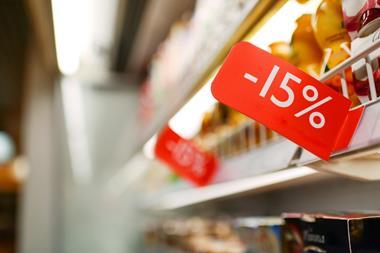
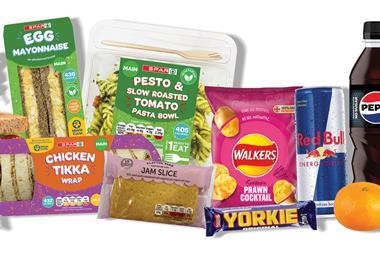

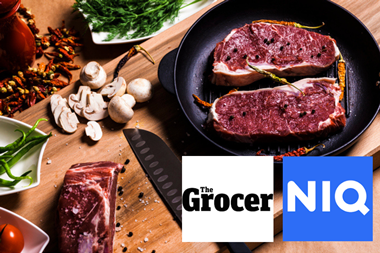
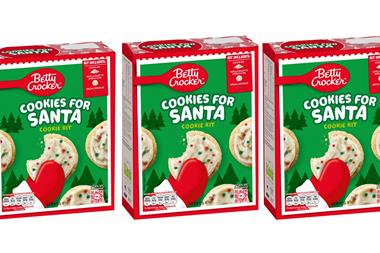


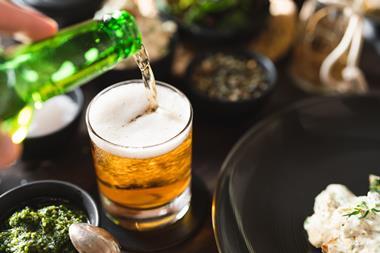

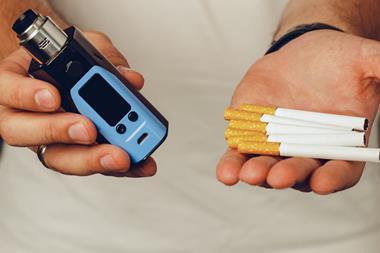

No comments yet